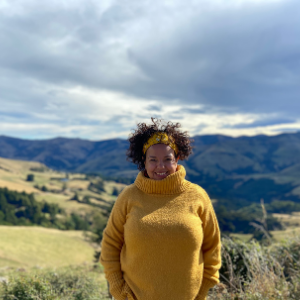Isn’t all yoga therapeutic?

By Veronica King
You can be forgiven if you are a little confused about why the term yoga therapy exists, after all, isn’t all yoga “therapeutic”? Well, the answer is Yes AND No. Let’s look at why the need for this distinction has arisen and its applications and implications.
Ultimately this distinction between Yoga Therapy and a Yoga Class is making sure that we practice the Yamas and Niyamas, in particular Ahimsa (not harming others) and Satya (truthfulness) within our profession.
One of the problems with yoga is that if you ask 10 different yoga teachers, “What is Yoga?”, you will get 10 different answers! Whilst I think 99/100 people will report feeling a benefit to their practice, like feeling relaxed, building strength and mobility, and breathing better, this is quite different from applying practices and principles as they apply to specific health conditions.
In a general yoga class we are looking to teach yoga, and whilst with experience, we can modify and support some of the issues students have, there are so many reasons why we cannot address the detail required in many conditions. There would always be some compromise, we would neither be addressing the individual’s needs nor offering what a general class student has come for.
This is why it’s important to be clear around the question “what is it that I am actually offering in this yoga class?”, and why “yoga for everybody” can be a bit of an issue.
Especially within the context of a 60 min class where there are lots of drop-in students, and the teacher might have a 5-7 min window to welcome everyone and get them organised in the room, it’s not feasible to expect that they would provide a personalised therapeutic experience to up to 30 people in the class.
Many conditions or health issues require 1-1 focussed attention or a highly specialised group class where everyone is in the same boat (eg prenatal yoga, trauma-informed yoga, yoga for seniors, yoga for cancer etc). To be teaching these classes one would assume the teacher has done additional specialised training or has significant lived experience.
Around the world professional yoga bodies such as Yoga NZ, Yoga Australia and Yoga Alliance, are looking to make a clear distinction between Yoga teachers and Yoga therapists. Part of our integrity as Yoga teachers is to be clear about our scope of practice, and within the realm of having a basic 200hrs of training, it is safe to say we would not be suitably trained to tackle complex health issues and how to specifically apply yoga.
Yoga therapy has evolved to provide clarity for the clients and the provider. The conditions of a therapeutic experience are created, including and not limited to: 1-1 experience, specialised skills, clinical assessment, and application of practices for the individual client needs, with the focus on relief from their unique symptoms and condition. This is the exciting thing about a career in Yoga, there is so much opportunity to grow and evolve in your career.
As an evolving field is that there is still time to be part of the professional conversation. Here in NZ there will be the final Yoga NZ 2021 Yoga Sanga, learn more about the future of Yoga Therapy in NZ, facilitated by experienced yoga therapist Jane Hardcastle. Free for members and is 1 CPD to your ongoing credits. Members can register here. Great time to register with Yoga NZ if you are interested in pursuing this field of yoga.
 Veronica King is a certified Level 3 Yoga NZ teacher and accredited facilitator of the Integrative Amrit Method of Yoga Nidra. Until recently, she spent almost 5 years as studio owner of an iconic Christchurch studio and is now enjoying working on her online recorded library theyoganidraproject.com. She is also celebrating all things yoga as the editor of The Yoga Lunchbox. Please note this is an opinion piece and not the official view of the Yoga Lunchbox. This article is not intended to replace professional medical advice.
Veronica King is a certified Level 3 Yoga NZ teacher and accredited facilitator of the Integrative Amrit Method of Yoga Nidra. Until recently, she spent almost 5 years as studio owner of an iconic Christchurch studio and is now enjoying working on her online recorded library theyoganidraproject.com. She is also celebrating all things yoga as the editor of The Yoga Lunchbox. Please note this is an opinion piece and not the official view of the Yoga Lunchbox. This article is not intended to replace professional medical advice.

Leave a Reply